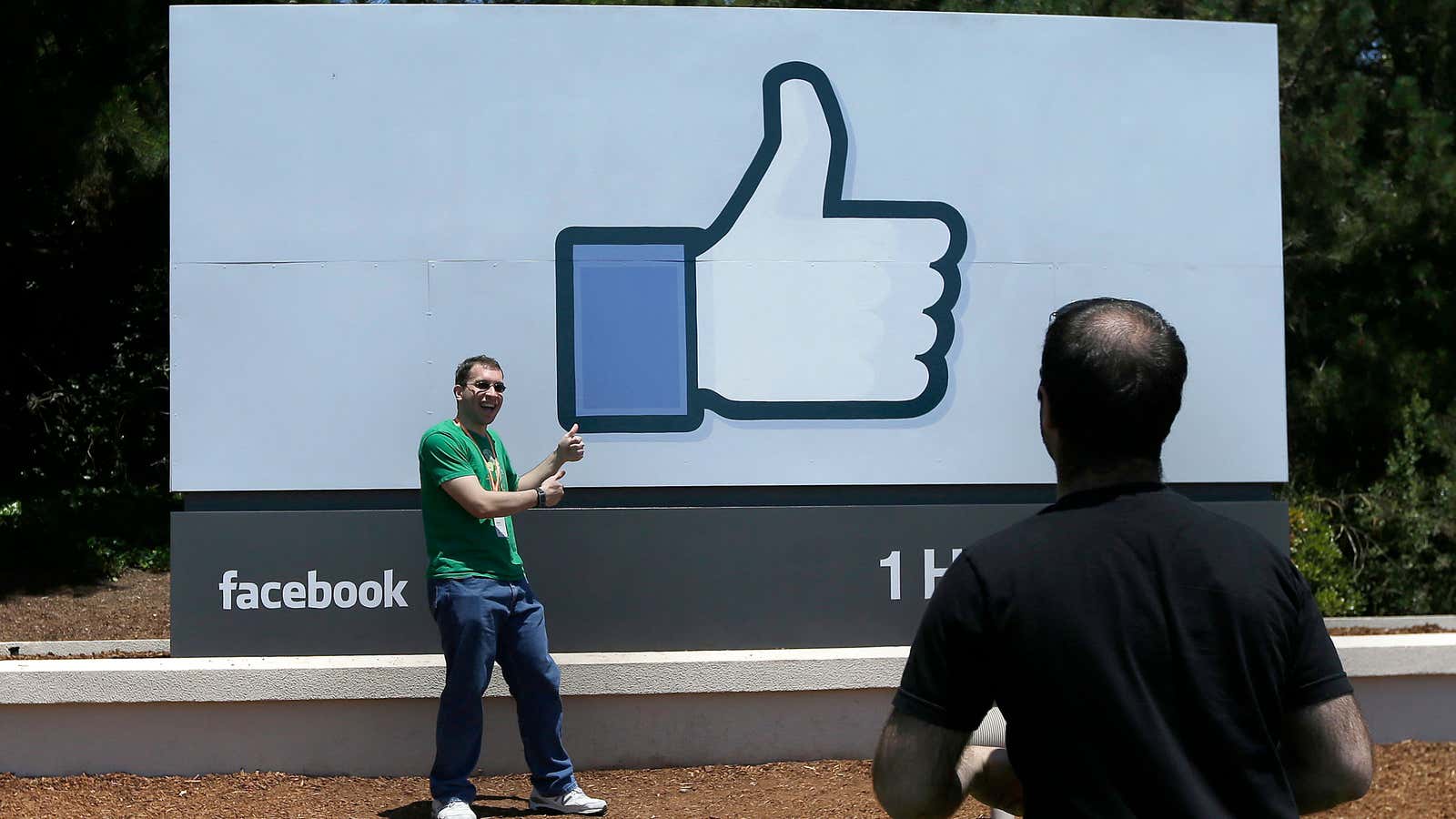This post has been corrected.
After months of teasing, Facebook is finally adding new emoji reactions to supplement its ubiquitous “like” button. The company said today (Feb. 24) that it’s making five reactions in addition to “like” available to users globally.
The new reactions are: 💖 Love, 😆 Haha, 😮 Wow, 😥 Sad, and 😡 Angry.
Users can access them by hovering over the “like” button in a desktop browser or holding down the “like” button on mobile.
For years, Facebook users have badgered the social network for a “dislike” button. Though Facebook fell short of giving them that—worrying it would be too negative—the company decided instead on six playful emoji buttons: 💖,😆,😊,😮,😥, and 😡 back in October 2015, when it launched a pilot of the new feature. It looks like the ”yay” reaction 😊 didn’t make the cut for the global release.
The new reactions will have an impact on the Facebook’s news feed, which guesses what content a user wants to see based on “likes,” according to a blog post from Sammi Krug, who manages the feature. Initially, all reactions will have the same weight as a “like,” but over time, the different emojis will be factored differently and shape what appears in a user’s news feed.
Facebook has known for a while that people often don’t mean it when they hit the “like” button. The company admitted last year that many users impulsively hit the button to further a connection with the poster, not necessarily because they agree with the content. CEO Mark Zuckerberg has said many times in the past that “like” isn’t an appropriate reaction to a somber status update or news story about tragedy.
Zuckerberg revealed to investors last month a key motivation for Facebook’s change: He was worried users would stop sharing content. This would mean less user-engagement, and fewer ads seen.
“If you share a sad piece of content or something that makes you angry, people may not have the tool to react to it,” he said. “And therefore, over time the community feels less comfortable sharing that content on Facebook. We want people to be able to share all of the things that are meaningful to them, not just the things that are happy and that people are going to ‘like’ when they see it.”
Correction: A previous version of this post stated that only positive reactions will factor into Facebook’s news feed algorithm.
